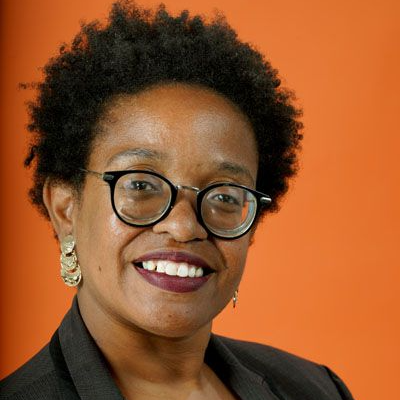About a week ago, I interviewed Nayantara Basu-Sen, who teaches English at Baltimore City Public Schools to those who aren’t native speakers. I wanted to hear how she and other educators were tackling relevant lessons during Black History Month as national pressure mounts to drop such focus.
A few days after we talked, the current presidential administration released an executive order to “install patriotic admiration” and end so-called “radical indoctrination,” in which “innocent children are compelled to adopt identities as either victims or oppressors solely based on their skin color and other immutable characteristics.”
This would seem to prohibit the teaching of subjects such as slavery and the Native American genocide — both of which certainly had victims. I shot Basu-Sen an email asking her if that order would affect her approach to the material. She responded quickly.
“My principal played ‘Fight The Power’ on the announcements this morning,” she wrote, referring to Public Enemy’s 1989 revolutionary classic. The planned Black history trivia challenge and other events were expected to continue, including a “discussion of intersectionality of race, class, gender and privilege.”
In other words, Basu-Sen said, “We aren’t changing anything.”
Telling American kids about our country’s fractured track record when it comes to equality should not seem like an act of rebellion, but has somehow become one. I attended Baltimore City Public Schools, where we always had Black history lessons in February. That wasn’t true for many of my friends around the country, however, and now that undertaught history is under even deeper attack.
Read More
But three local educators I spoke to said they have found more holistic ways to incorporate these truths, even in our current fraught times.
“I am concerned that Black History will be deemed irrelevant, like DEI [Diversity, Equity and Inclusion],” ELainia Ross-Jones, a math intervention teacher at Western High School, wrote in an email. Nevertheless, she doesn’t find it necessary to change the way she presents the bedrock facts of the contributions of Black people to this country.
“People will say that Black history is included in American history, but it is not,” Ross-Jones wrote. “We know that by the level of ignorance about African American ingenuity and contribution to the American Dream that we see on display every day.”
That ignorance, sadly, seems purposeful, as we see continual attacks on the teaching of any American history that calls into question facts about the country’s complicated — and in some cases, downright brutal — dealings with race, particularly with Black people. And it’s not a new phenomenon: In 2023, the right-wing group PraegerU released a series of blatantly untruthful videos for kids featuring an animated version of formerly enslaved abolitionist and Marylander Frederick Douglass calling slavery a “compromise.”
The solution, some teachers say, is to incorporate this history into lessons across various subjects all year long. Math teacher Ross-Jones says she integrates Black history into her courses. “I will approach my lessons with a special conviction. If ever there was time to push for academic excellence, cultural awareness and critical consciousness, this is the time.”
Basu-Sen cosigned the necessity to approach this history in a “cross-curricular way,” like teaching about painter Faith Ringgold in art class, learning “Lift Every Voice and Sing,” the so-called Black National Anthem, in music class, or inviting family members who experienced the Civil Rights Movement to give first-person histories. (My own mother, who was at the 1963 March on Washington, was once a guest speaker in my son’s third-grade class.)
“When we do readings to our younger kids, are we choosing books that have Black characters? Are we choosing books by Black authors?” Basu-Sen asked. “There are so many ways to celebrate Black History.”
One veteran Maryland teacher, who asked not to be identified because of job security concerns in this political climate, had a specific example of how including such crucial history in a natural way was so beneficial. She’d attempted to teach about medical racism using the notorious Tuskegee syphilis study, when Black men were monitored for the disease but not treated. But the subject became more relatable to her students when she delved into the very local story of Henrietta Lacks and the long-uncredited use of her cells.
“The more I learned, the more I thought that how once your mind is open to something, you can’t go back to your original thought,” she told me. “We have to lean into the discomfort by being intentional.”
The intentionality in teaching Black history across the spectrum makes sense to Basu-Sen, especially since she works in a district that is majority Black. “That should be our de facto, if we’re teaching culturally relevant things,” she said. “It’s a cliche to say that representation matters, but it does.”



Comments
Welcome to The Banner's subscriber-only commenting community. Please review our community guidelines.